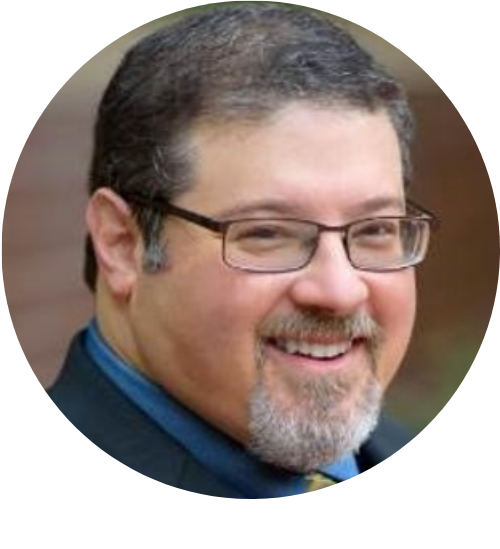Article and Video CATEGORIES
Thanks (and congratulations) to GRACE member Craig, who highlighted the just-published report that is the first to characterize the frequency and clinical features of the newly identified ROS1 rearrangement, identified in 2007, similar in structure to an ALK rearrangement, and found to also be responsive in preclinical cell lines to ALK inhibitor therapy. Craig has a special perspective on this new target, since a ROS1 rearrangement was detected in his tumor. Importantly, very early but quite promising work is showing that patients with a ROS1 rearrangement may respond very well to the oral ALK inhibitor XALKORI (crizotinib), Craig being one of the beneficiaries of this treatment.
He's one of a very limited number who we're only beginning to learn about. The article looks at the molecular features of 1073 tumors from patients mostly from Massachusetts General Hospital and Vanderbilt University, reporting that 18 (1.7%) had a ROS1 rearrangement and 31 (2.9%) had an ALK rearrangement. Both groups share the some clinical features, specifically skewing toward a much younger median age than the broader NSCLC population (around 50 in both ROS1- and ALK-positive patients, compared with 62 in the larger NSCLC population), being seen predominantly in never-smokers (in whom a ROS1 rearrangement was seen in 6% of the group), and being seen predominantly in patients with an adenocarcinoma (in fact, all 18 patients with a ROS1 rearrangement had an adenocarcinoma). The adenocarcinomas included many different subtypes and tended towards being more poorly differentiated and higher grade (correlated with a more aggressive appearance).
Work on a cell line with a ROS1 rearrangement showed that it responded to an experimental ALK inhibitor (TAE684), then that XALKORI could also inhibit these cells. This led to a patient with a ROS1 rearrangement receiving XALKORI as a component of a clinical trial. As we've come to sometimes see with XALKORI given to patients with an ALK rearrangement, the response was dramatic, with near complete resolution of his advanced bronchioloalveolar carcinoma (BAC), as dramatically illustrated in the images below:
While the published experience of XALKORI for ROS1-positive NSCLC is limited to one patient, there are about a dozen patients out there right now with a ROS1 rearrangement who have started XALKORI, and like Craig, most are doing very well on it. Dr. Shaw relayed to me that she's seen particularly impressive responses in the patients with BAC who have a ROS1 rearrangement and have received XALKORI (though this observation is based on just a few patients).
Others with a ROS1 rearrangement are waiting in the wings, generally because they're doing well on their current therapy. I met one such patient in my own clinic this week; she has done remarkably well on Alimta (pemetrexed), which has also been reported to be unusually effective for patients with an ALK rearrangement, with a plan to start XALKORI on clinical trial when a new treatment is needed.
Obviously, we'll need to get a larger experience with XALKORI in ROS1-positive patients, but there's plenty of reason to be very optimistic when the clear majority of the first dozen patients experience a dramatic response. This leads to a discussion of the limited number of patients with a ROS1 rearrangement, which will probably amount to about 2000-3000 patients per year in the US. That's not a lot, but if we can see dramatic and long-lasting responses (the latter is still too early to speak to right now) in the clear majority of these patients, it raises the incentive greatly for testing. Right now, that's available at just a few centers (I believe only MGH and University of Colorado, but others may be coming on line soon). In the future, though, with more and more patients getting adequate amounts of tissue for molecular testing, and now a growing collection of markers important to test for, we'll likely soon see new testing platforms developed that will test for a panel of multiple relevant markers all from one sample.
Though these smaller and geographically dispersed patient populations engender new challenges for research and routine clinical practice, the finding of more and more of these targets in small subgroups that receive big benefits from the right targeted therapy just raises the value proposition of crossing the chasm into the world of molecular oncology. We're only going to continue to identify more subgroups that will be appropriate candidates for individualized treatments.
Please feel free to offer comments and raise questions in our
discussion forums.
Forum Discussions
Hi Amber, Welcome to Grace. I'm so sorry you're going through this scare. It could be a recurrence. It also is as likely to be the contrast creating a better view. ...
Hi Blaze,
As much as I hate to say it, Welcome back Blaze. It sounds like you're otherwise feeling good and enjoying life which is a wonderful place to be. ...
Waiting for my appointment with oncologist this morning. Thank you for the response. It helps. <3
It sounds like you’re thinking of this in a very appropriate way. Specifically, it sounds like the growth of the nodule is rather modest, though keep in mind that the change...
Hi and welcome to GRACE. I'm sorry your mom is having this difficulty. An indwelling catheter is used when the pleura space continually fills and the catheter is always there to...





Hi and welcome to Grace. Wow, I don't know why you can't get in to see your doc but I'd find a way or find another doc who can walk you...